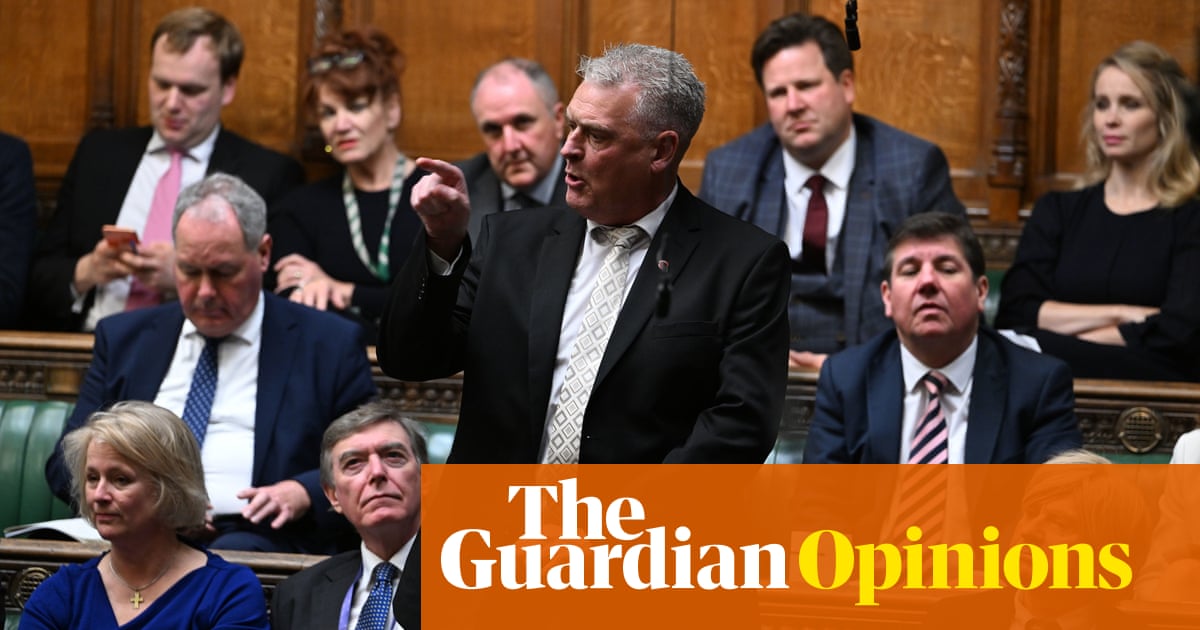
There is a Labour attack video from October that best sums up 2022 for the Tories. Released on the night that chaos consumedthe House of Commons over a vote on fracking that prompted Liz Truss to resign the next day, it didn’t require much work from aides at party headquarters. Instead, they simply tweeted out a television interview with a Conservative politician and titled it: “This is what Tory MPs think of their own government.” The MP in question – Charles Walker – goes on to decry the situation his party has created as a “shambles”, a “disgrace” and “utterly appalling”.
It reflects how the past 12 months have played out in British politics. The Conservative government has rattled through three prime ministers, four chancellors, five byelection losses and only narrowly avoided economic collapse. At times, Keir Starmer’s Labour party has looked as though it can’t quite believe its luck: why go on the attack when the Tories are doing such a good job fighting themselves? As one shadow cabinet minister puts it: “If Labour can’t win the next election after these clowns, when can we?”
The polls suggest they don’t have to worry much. The party is on course for a large majority when voters next go to the polls. There are plenty of downbeat Tories who agree. “This is the year we discovered we are losing the next election,” says one senior Conservative MP.
First drafts of history are already being written about the events that forced Boris Johnson and later Liz Truss from office. Yet while there is a clear consensus in the Tory party that this year was disastrous, there is no agreement on exactly why it went wrong. Was the error to back a scandal-ridden politician like Johnson in the first place, or was it to oust him after pressure from the media? Did Truss have a point? Can Rishi Sunak prove moderate Conservatism is the remedy? The fight to determine the lesson of 2022 is only beginning.
The timeline of events, at least, is clear. It began with scandal under Johnson as details of lockdown breaches in 10 Downing Street began to surface. Partygate – and the repeated No 10 denials – saw the Conservative party enter a doom loop. Johnson never quite managed to move the agenda on. After months of letters going to the 1922 Committee of Tory backbenchers – “It should be renamed the 2022 Committee for how much it dominated,” says one government aide – Johnson was eventually forced to quit after mass resignations over his handling of sexual misconduct allegations regarding his close ally Chris Pincher.
As potential successors filled the Spectator garden for its annual summer party, one Johnson loyalist told me: “Soon these MPs will wake up from their fever dream and realise the mistake they have made.” The contest that followed was vicious, with many Johnson loyalists taking an anyone-but-Sunak approach, blaming the former chancellor for sparking things by resigning along with Sajid Javid.
Liz Truss cruised to victory by promising a return to true low-tax Conservative values. She quickly blew up her premiership with a disastrous mini-budget. “Her victory was entirely expected but it was very clear she was a much weaker politician with weaker appeal,” says a member of the 2015 intake. “I thought it would lead us to a disastrous outcome.” Sunak was then ushered in without a membership vote, with MPs banking on a safe pair of hands to steer the UK out of the crisis.
While Sunak has succeeded in bringing a sense of calm back to politics, Tory MPs are already complaining that it is a brand of managerialism that offers little hope. The postmortem is ongoing. There are plenty of Tory MPs, particularly those in “blue wall” seats, who view the past 12 months as a lesson in the need for an honourable politician – one they think they have found in Sunak. “It’s a miracle that we have ended the year with our most popular prime minister in post,” argues one such Tory MP, who backed Sunak both in the summer and in the autumn contest. The hope of this group is that Sunak will show that realism and hard work pays off, and slowly win back public trust, chipping away at Labour’s poll lead. If he does, the scandal of Johnson’s final days and the chaos of the Truss era would be exposed as failed experiments.
Then there are the Trussites. Truss and her supporters may have been cast out in extraordinary circumstances amid market mayhem. But that doesn’t mean they think they were wrong. The view of the former prime minister and her team is that her diagnosis was correct – even if the methods for getting there left a lot to be desired. They believe that time will prove the UK is trapped in a low-growth cycle; to prevent it becoming a low-growth, high-tax economy, radicalism will be needed. In the new year, we can expect this group to start to make their voices heard.
Finally, there are the MPs who believe the big mistake happened on 7 July, when Johnson was effectively forced out. To the Boris loyalists, it’s the year the party ousted the greatest electoral asset it had – one to whom the 2019 coalition exclusively belongs. “The alternatives to Boris are worse electorally,” says a Tory MP in the centre of the party, despite the byelection losses suffered under his leadership. “This could be the year when we temporarily lost him and he comes back.” Some of the most hardline Johnson backers would ultimately rather the Tories fail without him than succeed. That would show, they argue, that 2022 was the year the Tory party lost its mind.
With all these Tory factions with scores to settle, against a backdrop of strikes and local elections, 2023 could be the year the Conservatives decide what the cure to the malaise of 2022 really is.
Katy Balls is the Spectator’s deputy political editor












